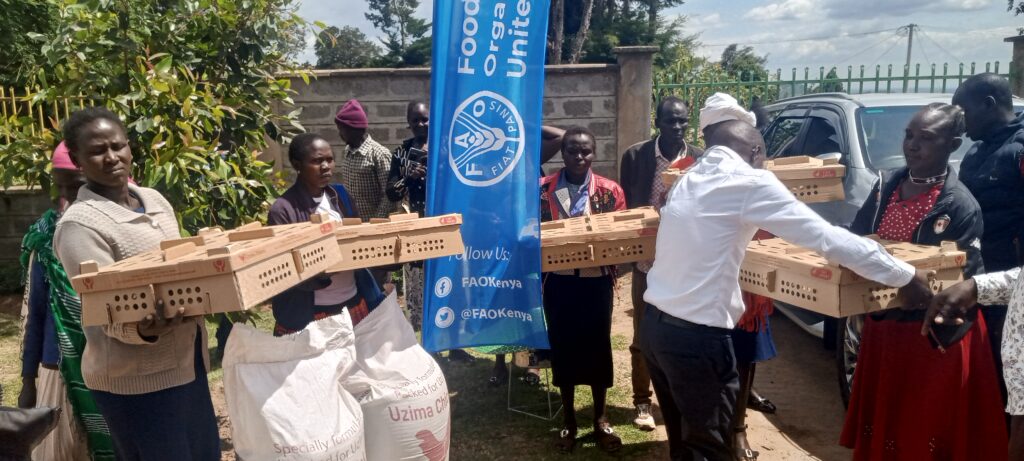West Pokot County Gov’t in Partnership With UN Donates Livestock

By Cynthia Lodite,
The government of West Pokot County in patnernship with United Nations,Food and Agriculture Organization and Village Enterprice has donated livestock to a section of residents in West Pokot County.
In an event held on Friday 23rd February at Kilimo House in Kapenguria, the Ministry noted that the programme is set to empower agricultural economy in West Pokot County.
The event was graced by Food and Agriculture Organization official Mr Brian Cherutich,Agriculture and Livestock CECM Mr Wilfred Longironyang and Director of Agriculture West Pokot County Mr Peter Kodwaran.
According to the Ministry of Agriculture,the project was funded by KOICA which saw the residents receive atleast 33 sheep and 7200 chicks.
Likewise, according to the Ministry of Agriculture West Pokot County , the project will benefit residents from,Nakwiyien,Asilong and Ngengechwo villages in Suam ward and Chepokoriong and Kerelwa villages in Batei ward.
While handing over the chicken and sheep, County Executive Committee Member for Agriculture and Livestock Hon. Wilfred longronyang urged the farmers to be proactive with the program.
Further while asking farmers to be proactive, he also noted that the proactiveness will ensure what they have been given will sustain them economically through employing smart agriculture.
On the other hand, Mr. Cherutich from FAO echoed the CEC’s sentiments by calling on the farmers to feed and take care of their sheep and chicken so that they can support them through breeding and selling them when they are ready for the same.
Meanwhile, the Women Economic Empowerment through Climate Smart Agriculture Program supports women across various value chains working with women, youth, and their communities to support women groups.
In addition the programme has an influence in all-inclusive contributions to sustainable farming methods which contributes to safeguarding local food supply, nutrition, income and livelihoods across different value chains.
